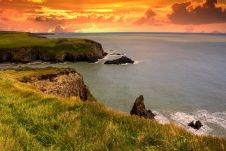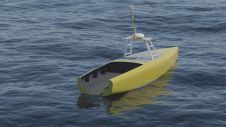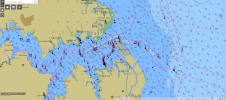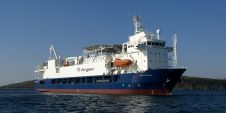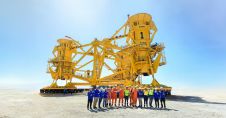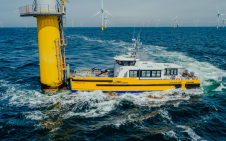IOC of UNESCO
Intergovernmental Oceanographic Commission of UNESCO
The Intergovernmental Oceanographic Commission (IOC) was established in 1960 as a body with functional autonomy within the United Nations Educational, Science and Cultural Organization (UNESCO). The Commission provides Member States of the United Nations with an essential mechanism for global co-operation in the study of the ocean. The IOC assists governments to address their individual and collective ocean and coastal problems through the sharing of knowledge, information and technology and through the co-ordination of national programmes. The IOC has 136 mainly coastal Member States, and is governed by its own General Assembly, which meets in odd years, and its Executive Council, which meets in even years.<P>
IOC activities are carriedout in the framework of a 6-year medium-term strategy and biennial programmes. For 2008–2009, the IOC Medium-Term Strategy will focus on four high-level objectives:
•prevention and reduction of the impacts of natural hazards
•mitigation of the impacts and adaptation to climate change and variability
•safeguarding the health of ocean ecosystems
•management procedures and policies leading to the sustainability of coastal and ocean environment and resources.
The implementation of the Medium-Term Strategy is ensured through four strategic drives and a number of programmes and targeted actions.
Ocean Observations
The IOC is the leading international organisation in facilitating worldwide co-operation in ocean observing networks, in promoting the establishment and maintenance of communication systems for the rapid exchange and distribution of ocean data and information. Examples of sustained observing networks co-ordinated by the IOC include measurements of sea level through the Global Sea Level Observing System (GLOSS) programme, and monitoring warning and mitigation for tsunamis through its tsunami programme. Since 1991, the IOC has been integrating a wide range of global and coastal measurements into the Global Ocean Observing System (GOOS). GOOS is designed to (i) monitor, understand and predict weather and climate; (ii) describe and forecast the state of the ocean, including living resources; (iii) improve management of marine and coastal ecosystems and resources; (iv) mitigate damage from natural hazards and pollution; (v) protect life and property on coasts and at sea; and (vi) enable scientific research. GOOS provides for regular observations of major physical, chemical and biological properties of the World Ocean, including the coastal zone and enclosed and semi-enclosed seas.
Ocean Services
Ocean services – i.e. the continuous, routinely delivery of information products containing forecasted conditions for a given set of ocean properties – are produced and distributed free as public services for use by a wide range of users. As industrial operations on the continental shelf increase, ocean weather forecast is becoming more important, creating an increasing demand for ocean services. Examples of current public service operations supported by the IOC and the World Meteorological Organization (WMO) through the Joint Technical Commission for Oceanography and Marine Meteorology (JCOMM) are the Global Maritime Distress and Safety System (GMDSS), the Marine Pollution Emergency Response Support System (MPERSS), and the JCOMM Electronic Product Bulletin (J-EPB) developed in response to the needs of the oceanographic and Earth science communities for real-time oceanographic data, wave weather and storm surges forecasts, and sea ice services.
Ocean Data Management and Exchange
The IOC function of data collection, through its networks of ocean observations, is fundamental and underpins all the current research efforts on climate and the development of ocean services. Consistent with its international public service mission, all data collected by Member States as part of IOC programmes and activities are subject to free and open exchange under current IOC Data Policy. New automated systems deployed over the whole World Ocean are providing a data stream never attained before in history. Organising the necessary technological networks, collaborating with the WMO and using its Global Telecommunication System (GTS), the IOC has significantly closed the gap between the traditional delayed mode exchange of data (weeks to months) and real-time exchange of data. Current IOC programmes provide the necessary data, information and knowledge to contribute to services needed to effectively address ocean issues. For example, to answer the increasing demand for improving climate and hazard forecasts at the local level requires accurate and precise data from larger scales.
Tsunami Early Warning and Mitigation Systems
Based on the IOC’s 40 years of experience with the Pacific Tsunami Warning System (PTWS), in 2005 the IOC established Intergovernmental Coordination Groups (ICGs) for the Indian Ocean (IOTWS), for the North-eastern Atlantic, the Mediterranean and connected seas (NEAMTWS), and for the Caribbean Sea and adjacent regions (CARIBE-EWS), and created an ad hoc Working Group to prepare a framework for a Global Tsunami and Other Ocean-related Hazards Early-warning System (GOHWMS). All ICGs are entrusted with the development of operational early warning and mitigation systems for tsunamis and other marine hazards. The ICGs of the new regional systems have met and made significant progress. All systems now plan for a point in time to take over full responsibility for their coverage, thus providing an exit date for the interim services provided by the Japan Meteorological Agency (JMA), the Pacific Tsunami Warning Center (PTWC) and the West Coast/Alaska Tsunami Warning Center (WCATWC).
Ocean Sciences
The IOC advocates, promotes and co-ordinates international research in ocean sciences, maintaining and nurturing a strong link with the scientific community and supporting its work at the intergovernmental level. Several IOC programmes deal with research on the role of oceans in climate change. These programmes deal directly – for example, GCOS-GOOS-WCRP Ocean Observations Panel for Climate (OOPC), International Ocean Carbon Coordination Project (IOCCP), Ocean Acidification – or through sponsorship of marine science programmes – for example, World Climate Research Programme (WCRP), Global Coral Reef Monitoring Network (GCRMN), Global Ocean Ecosystem Dynamics (GLOBEC). The IOC is also directing attention to physical oceanographic research not related to climate, global numerical modelling of oceanographic processes and monitoring of the geochemistry of deep ocean basins. Of particular relevance is the work developed by the harmful algal blooms programme, which aims at assisting Member States to understand and mitigate the effects of harmful algal blooms on national economies, aquatic living resources, public health and the aquatic ecosystem. The development of guidelines and applications for coastal managers – the Integrated Coastal Area Management Programme (ICAM) – is supported by linkage to relevant research networks on the complex coastal environment. Building on global networks of scientists, the IOC actively contributes to make all science efforts as inclusive as possible and strives to build a truly global scientific community in ocean sciences by contributing to build scientific capabilities at the individual, institutional and national level in the developing world, especially in Africa. Jointly with the United Nations Environment Programme (UNEP), the IOC participates in the UN regular process for Global Reporting and Assessment of the State of the Marine Environment, Including Socio-economic Aspects (GRAME).
Capacity Development
The IOC’s Capacity-Development Section presently focuses on co-ordinated professionally conducted Leadership and Marine Action Planning Workshops in various regions of the world. These workshops aim to strengthen marine science institutes by (i) augmenting leadership skills of the directors, and (ii) setting the stage for proposal-writing by project leaders and project scientists. Such capacity-development initiatives catalyse changes in attitude of the participants as witnessed by their initiatives in moving to the next stage of the process – i.e. identifying the challenges in addressing these concerns and prioritising the required capacity-development needs, challenging and stimulating the self-drive of institutes.
Some of the IOC’s programmes mentioned above will be featured in greater detail in future issues of Hydrointernational.

Value staying current with hydrography?
Stay on the map with our expertly curated newsletters.
We provide educational insights, industry updates, and inspiring stories from the world of hydrography to help you learn, grow, and navigate your field with confidence. Don't miss out - subscribe today and ensure you're always informed, educated, and inspired by the latest in hydrographic technology and research.
Choose your newsletter(s)

